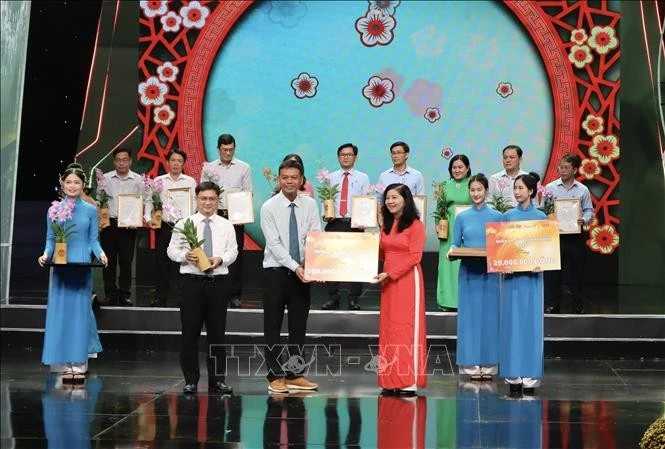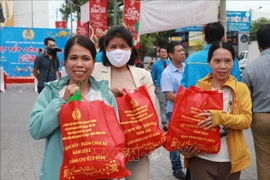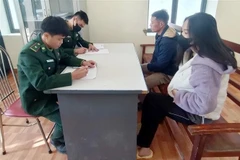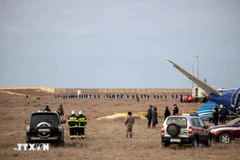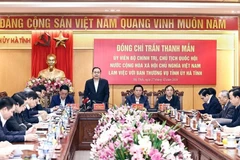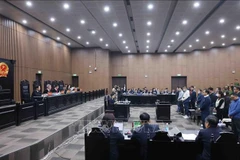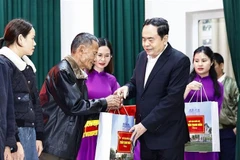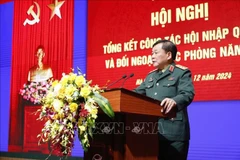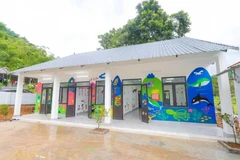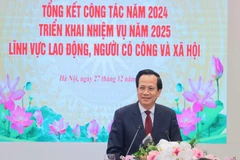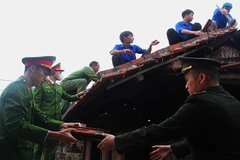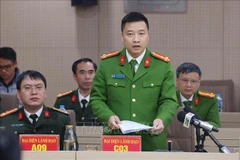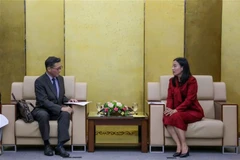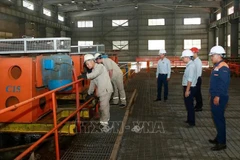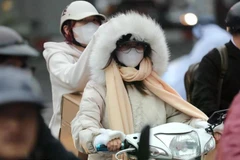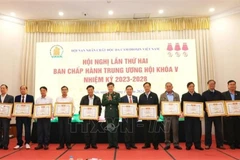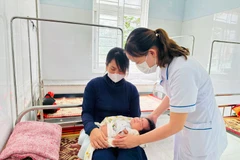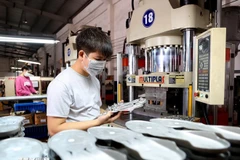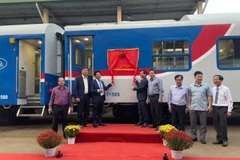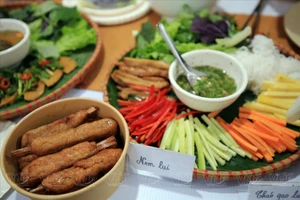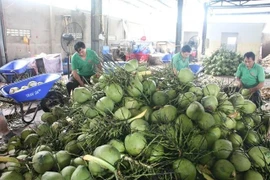HCM City (VNA) – Ho Chi Minh City raised more than 8.4 billion VND (330,000 USD) at a special art programme in the city on December 26 evening, aiming to support local farmers and disadvantaged residents.
The “Tet nghia tinh” (Tet of love) programme was jointly held by the Ho Chi Minh City Farmers’ Union in collaboration with the city’s Television Station ahead of the Lunar New Year (Tet), the most important festival of Vietnamese people in a year.
The programme, began in 2008 as the “Cay Mai Mua Xuan” (Spring apricot flower tree) and “Tet Lam Dieu Hay” (Tet with good deeds) initiatives, is a part of efforts to mobilise social resources for the care for poor and vulnerable farmers, as well as those in need across the city and its twinned cities and provinces nationwide.
Le Minh Dung, Chairman of the HCM City Farmers’ Union, said that over the past 16 years, “Tet nghia tinh” has grown into a symbol of solidarity, providing vital support to improve the lives of farmers and help them overcome hardships, stabilise livelihoods, and escape from poverty, thus speeding up the implementation of the city’s sustainable poverty alleviation programmes.
Last year, the programme raised 8.2 billion VND which was used to provide 2,716 gift packages, 150 savings books, 1,476 scholarships, and cash for 30 orphans due to the COVID-19 pandemic. Meanwhile, 65 sets of production tools were presented to farmers, while two houses were built for the needy from this fund. In addition, health insurance support was given to local policy beneficiaries, along with other social welfare activities across the city and twinned localities.
Dung called for continuous contributions from organisations, individuals, agencies, and businesses to the programme to care for more needy farmers and residents.
Praising the results of the programme, Nguyen Manh Cuong, Head of the municipal Party Committee’s Board for Mass Mobilisation, thanked businesses, organisations, and individuals contributing to the programme, and urged farmers to leverage the support provided, not just to overcome poverty but also to achieve economic success and contribute to the city’s broader goals of rural development and social progress./.
